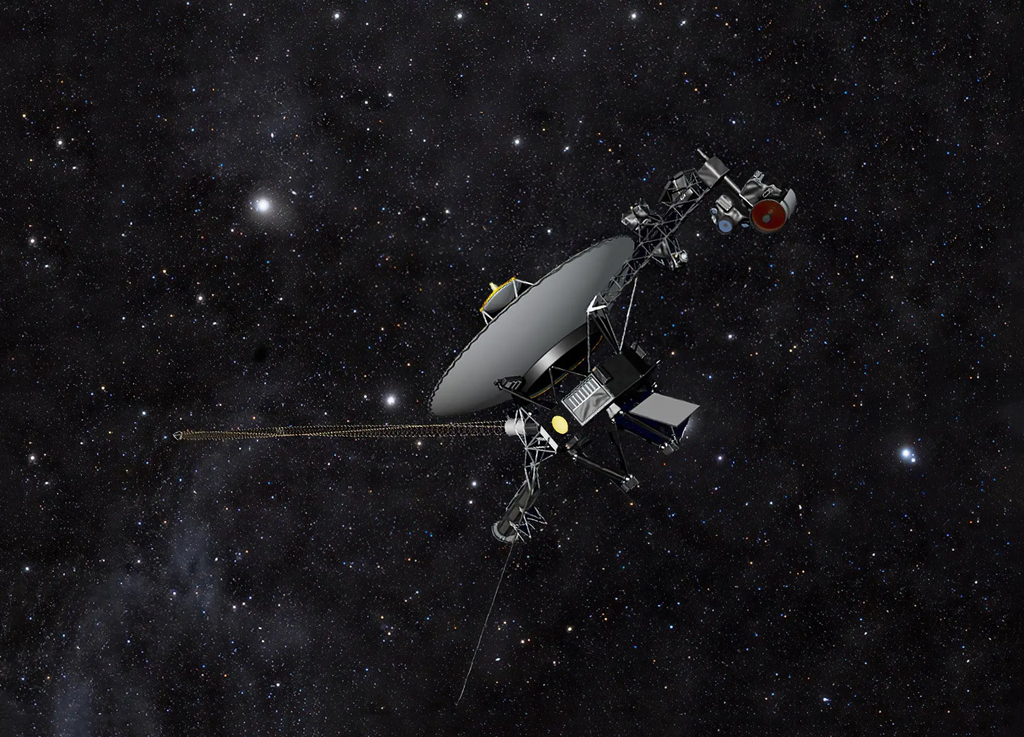NASA’s Voyager 2 has lost communication with Earth due to an unintentional shift in its antenna direction. The next programmed orientation adjustment on October 15 is expected to restore communication, while Voyager 1 continues to operate as usual.
A series of scheduled commands directed at NASA’s Voyager 2 spacecraft on July 21 led to an unintentional change in antenna direction. Consequently, the antenna moved 2 degrees off course from Earth, causing the spacecraft to lose its ability to receive commands or transmit data back to our planet.



Wonder if we could ping it off one of the other satellites we have around other planets to get a message out to it. Fingers crossed it’s back in contact by October and we don’t have to try weird shit though
I would imagine 2° at 12 billion miles means it’s almost certainly not pointing at anything man-made anymore, but I’m also not an astrophysicist so ¯\_(ツ)_/¯
Being that far out I don’t even think we could go out and fix it anymore
Lol no we most certainly cannot go out and fix it.
yet
But by the time we could there would be zero reason to anyway
I could see some far-future humans intercepting the Voyagers, catching them, and putting them in a museum somewhere.
And even if it was pointed at random nasa equipment it’s so far away that you need a very special radio and antenna; not just any old satellite is necessarily going to do the trick. I think the signal strength is around -196db iirc so incredibly faint, and The antennas they use to communicate with voyager are massive.
Oh absolutely not. I’m just wondering if we could get stupidly lucky XD maybe it happens to be pointing at Voyager 1 (honestly idk how the trigonometry works out but maybe New Horizons?? Lol)
We’re talking about the most proverbially gone shit in human history. Not only is it too far away, it is going faster than any man-made object has ever gone.
…And we once launched a massive metal disc out of a giant bore hole with a nuclear explosion.
Edit: actually Operation Plumbbob sent the steel bore cap nearly 4x as fast as Voyager. Suck it, nerds.
Holy shit, that’s significantly faster than a steel plate that was launched by a nuke and subsequently vaporized. Insane. Thank you
I’d guess even if some other man made satellite is perfectly in line, those wouldn’t have even close to the necessary transmission power to reach voyager.
A shift of 2° at 12.3 billion miles means it’s now pointing about 430 million miles away from the earth. The likelihood that it would be pointing at one of the small handful of man made objects that are out that far is infinitesimally small. Imagine being in a filed 100 miles wide and spinning a bottle with a laser pointer on it and hoping it lands pointing at a single bottle cap at the edge of the field. That would be magnitudes more likely than this pointing at one of our objects. And even if it did, those also would have antennas pointed at Earth so they couldn’t receive the message without turning which might cause the same issue for them.
deleted by creator
If I read it correctly, the probe checks periodically, and if it loses contact, it uses the location of known stars to point its antenna back towards the Earth. If that doesn’t work, it’s gone.